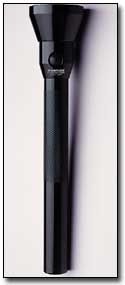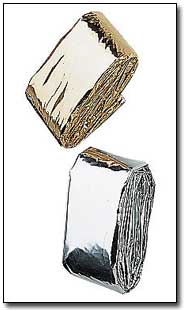|
1: Matches should be in waterproof containers and should be strike anywhere type and
 you should have at least three containers in your gear and on your person for
survival reasons. The best container I have found is the Military Surplus cylinder
that holds about 20 matches and is about 1 inch in diameter and about 2 1/2 inches
long. Also at least enough fire starter for a couple of fires should be along incase
of a downpour. One military Trioxane pellet is enough to start several fires. Total
weight accumulated 3 or 4 oz.
you should have at least three containers in your gear and on your person for
survival reasons. The best container I have found is the Military Surplus cylinder
that holds about 20 matches and is about 1 inch in diameter and about 2 1/2 inches
long. Also at least enough fire starter for a couple of fires should be along incase
of a downpour. One military Trioxane pellet is enough to start several fires. Total
weight accumulated 3 or 4 oz.
2: Beef Sticks and Beef Jerky are great for your daytime snacks. They keep well in a
backpack for several weeks and can be put in vacuum sealed packets that are just
right for a day's travel and occasional snack. You can get the ones that are mild so
they don't require as much water consumption. You listed about everything else, but
not them. (Meat is better in colder weather than the nuts and berries because it
 causes more body heat.)
causes more body heat.)
3: Self charging flashlights. Also you can find really small flashlights at most
Sporting goods stores that hold one AAA Battery. They are smaller than your little
finger and you can again have three of four spread through your gear and they weigh
practically nothing. They also last a long time if used conservatively. Make sure
the batteries are new in ALL equipment when going out on any trip. Total weight
about 6 or 7 oz
4: Carpenter's String line. You can wrap several feet on a stick and have three or
four of them in you gear again. (Great for tying sticks to a makeshift shelter or as
a clothes line or for a hundred other reasons. Also a small coil of wire is a good
idea too to make a snare if need be. Military surplus Trip Wire is as good as any).
Total weight 6 to 8 oz.
5: Two or three space blankets. (I carry three, one for an emergency ground pad and
the other two to waterproof a lean to or a ripped tent.) They are no good for keeping
 you warm, but they will make for a waterproof shelter if you are stranded. Total
weight 4 oz.
you warm, but they will make for a waterproof shelter if you are stranded. Total
weight 4 oz.
6: A sewing kit that has a few big needles, (Big enough to use with the string line
and the wire if need be), and a few small ones, and some thread. Also in this case
should be a 1/4 inch steel drill bit. One can find a million uses for this. Total
weight 3 or 4 oz.
7: No matter what else you have in your first aid kit there should be one small tube
of Unguinteen included. It is the best all purpose salve out there and has NO side
effects known. It will disinfect anything from a burn to a cut. total weight 3 oz.
8: Take a hammock for uneven ground. You can get one that weighs 20 oz and is
mildew proof. Military Surplus, (A hammock and a space blanket can keep you dry and
off the ground on a rainy cold night if need be).
9: One other tip that an old timer who lives in the Canadian Bush taught me: If you
take a dump, do it on a burnable type of material such as paper or a plastic bag.
Then burn it in your campfire after you have eaten and the food is gone. Some people
may find this disgusting, but it is a solution to the waste problem that leaves no
burking or carrying problems. He also said to "mark" all four corners of your
campsite when you have to urinate to keep the critters away. He's in his late 70s
and has lived up there all his life, so I think he knows what he is talking about.
Practice at home with these items before you go canoeing so you know how to use them
out there on the trail or at a campsite.
Yes, I realize these are survival tips, but one should never take nature for
granted. A few of these items in even a daypack and a little basic knowledge of
survival skills can make the difference of life or death if a severe storm hits
unexpectedly. I have a vest that I wear whether hiking or canoeing and camping that
have most of these items in it. I've been canoeing locally, (Western WI), and also
going to Canada for over 25 years, and have found that these are NECESSITIES for a
safe trip no matter where you go.
| 
